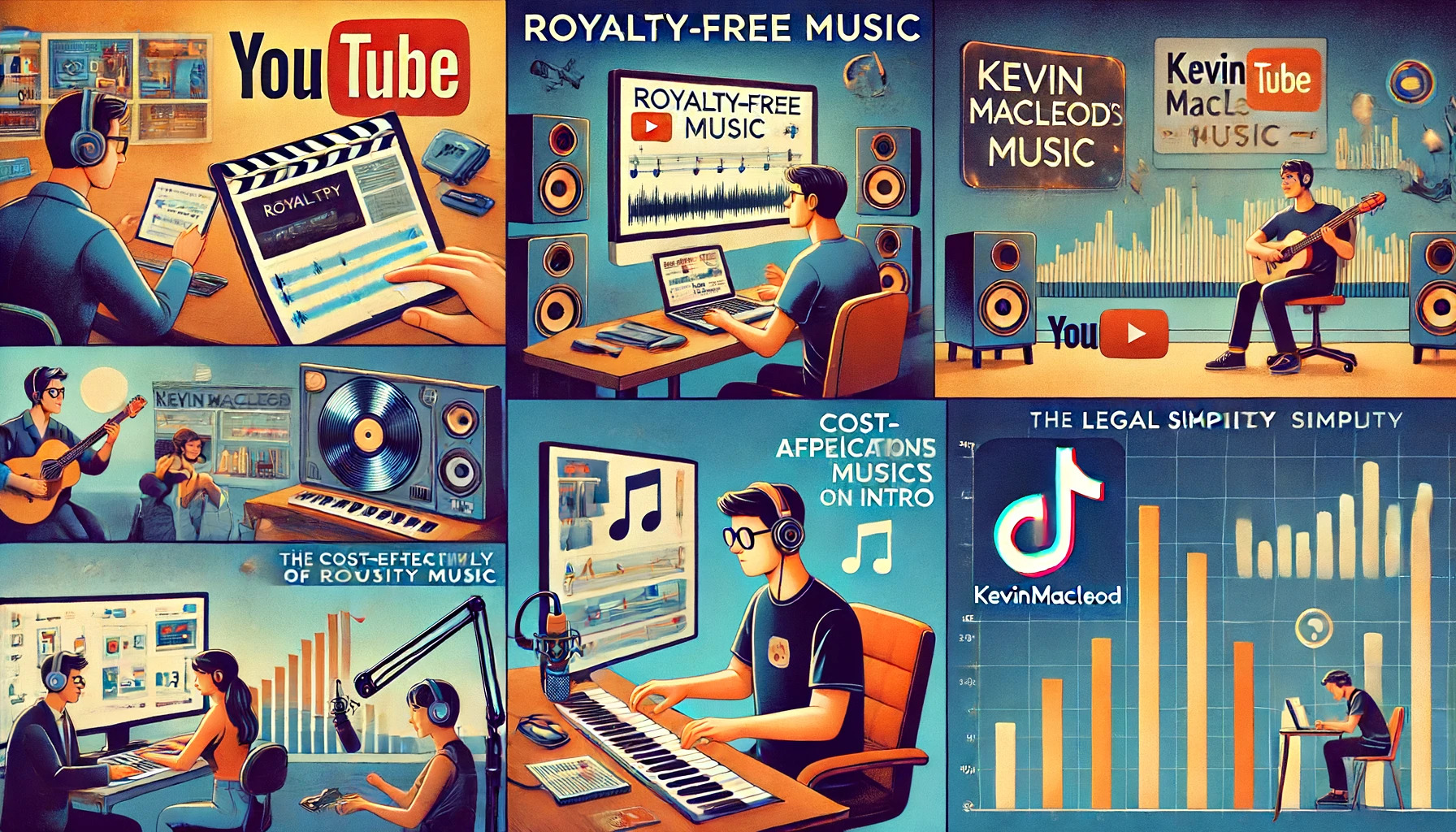Feud Between TikTok vs Universal
In 2024, the evolving dynamics of the digital music landscape took an unexpected turn, highlighted by the recent resolution of a major feud between TikTok and Universal Music Group (UMG). This conflict centered around royalties and led to the temporary removal of music by artists such as Taylor Swift, Bad Bunny, and Kendrick Lamar from the platform. While TikTok’s identity as a cultural and music aggregator faced scrutiny, the debate brought to light the increasing significance of royalty-free music.
The Emergence of Royalty-Free Music
What is Royalty-Free Music?
Royalty-free music refers to tracks that can be purchased or licensed with a one-time fee, exempting users from paying recurring royalties despite continued usage. This model is particularly appealing to businesses, content creators, and individuals seeking cost-effective, legal music solutions for their projects.
Kevin MacLeod: A Pioneer in Royalty-Free Music
Kevin MacLeod, a software programmer turned composer, has significantly influenced the royalty-free music domain. His extensive catalog on Incompetech has become a staple for internet content, from YouTube videos to TikTok snippets. MacLeod’s tracks, like “Monkeys Spinning Monkeys” and “Sneaky Snitch,” are ubiquitous, underlining the critical role of royalty-free music in digital media.
The Role of Royalty-Free Music in Content Creation
Diverse Applications Across Platforms
Royalty-free music finds utility across various digital platforms:
- YouTube: Background scores for vlogs, tutorials, and drama channels.
- TikTok: Short-form videos and viral content.
- Podcasts: Intros, outros, and thematic music.
Case Study: Alan Walker’s “Fade” to “Faded”
Alan Walker’s journey from an unknown producer to a mainstream success story underscores the potential of royalty-free music. Initially released as “Fade” under NoCopyrightSounds, the track’s popularity prompted Walker to re-release it as “Faded” with a professional touch, leading to massive success.
The Influence on Meme Culture
Kevin MacLeod’s music has also become integral to meme culture, particularly on YouTube. Tracks like “Fluffing a Duck” and “Sneaky Snitch” are frequently used in comedic and dramatic contexts, further embedding royalty-free music into the digital zeitgeist.
The Advantages of Using Royalty-Free Music
Cost-Effectiveness
One of the primary benefits of royalty-free music is its cost-effectiveness. Creators pay a one-time fee, making it a budget-friendly option for long-term projects.
Legal Simplicity
Royalty-free music eliminates the complexities associated with music licensing, providing a straightforward, hassle-free solution for content creators.
High-Quality and Versatile Options
Modern royalty-free libraries offer high-quality, versatile music that can cater to various needs, from cinematic scores to upbeat jingles.
The Future of Royalty-Free Music
Expanding Libraries and Innovation
As the demand for royalty-free music grows, so does the innovation within this space. Libraries are expanding, offering more sophisticated and varied tracks to meet the evolving needs of creators.
Integration with Emerging Technologies
The integration of royalty-free music with emerging technologies like AI and machine learning is set to revolutionize content creation. These technologies can enhance music personalization, making it even more tailored to specific projects.
Producers Working For Free…
The landscape of digital music is constantly evolving, with royalty-free music playing a pivotal role in this transformation. From cost savings and legal simplicity to the wide array of high-quality options available, royalty-free music empowers creators to produce engaging and legally compliant content. As this domain continues to grow, it is poised to shape the future of digital media, ensuring that music remains an integral part of our cultural fabric.
In leveraging the power of royalty-free music, creators can enhance their projects, ensuring they resonate with audiences worldwide. As we continue to navigate the complexities of the digital age, the role of royalty-free music will undoubtedly become even more significant.


